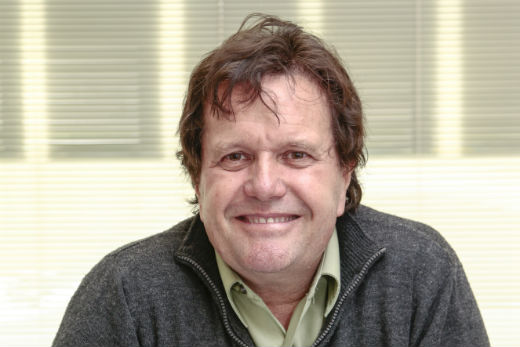Tauranga's Cliff Tolley knows exactly what it's like to experience a heart attack – and he's encouraging Kiwis to learn the signs and symptoms and to seek help immediately.
Cliff was aged 53 when, with no warning, he suffered a heart attack in November 2015. He had been battling a virus and experiencing some acid reflux from vomiting. As a result, he thought the pain in his chest was nothing to worry about.
Cliff Tolley suffered a heart attack at 53.
But when he found it difficult to lie down due to the pain, he decided to see a doctor.
'The last thing I expected was to be told that I'd had a heart attack.”
Cliff doesn't smoke, doesn't drink much, has no family history of heart disease and has regular blood tests. He describes himself as 'pretty fit”.
'It was very frightening to me and my kids were totally shocked. I never thought anything like that would happen to me and really did not know the symptoms and so I did not seek help sooner – men just need to get over their macho attitudes.”
This month is Heart Attack Awareness month, when the Heart Foundation seeks to highlight the symptoms of a heart attack and the need for urgent medical attention.
The Heart Foundation is calling on Kiwis to put aside their ‘she'll be right attitude' and dial 111 immediately if they suspect they or another person is having a heart attack.
Heart Foundation medical director Gerry Devlin says too many New Zealanders are placing themselves at increased risk of death or permanent heart damage by putting off calling for help.
Gerry, who works as an interventional cardiologist at Waikato Hospital, says it can be frustrating to see people turning up at an emergency department many hours after heart attack symptoms began.
'The traditional Kiwi ‘she'll be right' attitude can be fatal,” says Gerry.
'When a heart attack happens, life-threatening rhythm problems are common. As such, early access to a defibrillator is really important to save lives.
'This is why we recommend calling 111 immediately. Also, the earlier the blocked artery is opened up, the less long-term damage there is to the heart muscle. Speed is critical.”
Gerry says it is vital all Kiwis are aware of the symptoms of a heart attack and act with urgency.
Symptoms of a heart attack can include chest discomfort lasting 10 minutes or more; pain that spreads to the jaw, shoulders or back; excessive sweating; shortness of breath; and nausea.
Women sometimes experience different symptoms to men, says Gerry.
'Like men, the most common heart attack symptom for women is chest pain or discomfort.
'However, women are more likely to experience other less obvious symptoms such as discomfort in the upper back, nausea, sweating and unusual fatigue.”



0 comments
Leave a Comment
You must be logged in to make a comment.